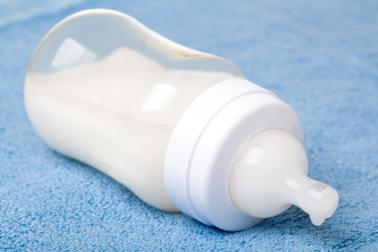
Children of all ages deserve to grow up in environmentally friendly conditions. An eco-friendly home is even more important for babies, who are more vulnerable to hazardous substances. One of those substances is found in everyday household plastics, and until recently was used to produce baby bottles. If you&rsq uo;re a green parent you’ll want to be 100% sure that your baby’s bottles and other equipment don’t contain this compound.
Bisphenol A, or BPA as it is commonly known, has been used since the 1950s in plastic products, especially polycarbonate plastics and epoxy resins. As well as occurring in plastic bottles to make them shatterproof, it is also used as a lining material for containers, including baby food packaging. What every green parent needs to know is that BPA is an endocrine disruptor, with hormonal effects, so you don’t want it near your baby! It also has potentially damaging environmental effects when consigned to the landfill.
The list of problems that endocrine disruptors cause is long and shocking. BPA mimics the effects of estrogen. It’s been linked to disturbed neurological function and behavioural problems in children, and interferes with the neurotransmitter dopamine. It has also been implicated in obesity and thyroid dysfunction. Animal experiments have raised the possibility that it may also cause some kinds of cancer.
Although experts disagree on how dangerous BPA is, a green parent won’t take the risk. BPA has been banned in baby bottles in many countries. Canada led the way back in 2008, and in 2012 the U.S. FDA banned it from bottles. Concerns have also been raised about zippy cups and pacifiers. Not all countries have banned it, meaning that travellers abroad should beware of what they buy.
There is no legal requirement to label products containing BPA, so your best bet as a green parent is to buy from a trusted retailer. You can check bottles to see if they are marked with a number 7, which indicates its inclusion. While you’re at it, be sure to check that the product is also free of phthalates which have similar toxicity. Many manufacturers have made an effort to sell BPA free plastic bottles that are marketed accordingly, so it won’t be hard to find an alternative. Polypropylene and PES (polyether sulfone) bottles are considered safe. Beware also of the material used for bottle teats, since some may contain carcinogenic nitrosamines.
Rather than buying BPA free plastic bottles, you may want to consider glass bottles. The chances of these modern products breaking are small, and some come with a rubberized sleeve for extra grip and protection. As a material that’s easy to recycle, glass bottles are perhaps the best product available for the dedicated green parent. BPA may still have some place in the industry, but it doesn’t belong in your home, and especially not near your baby.

